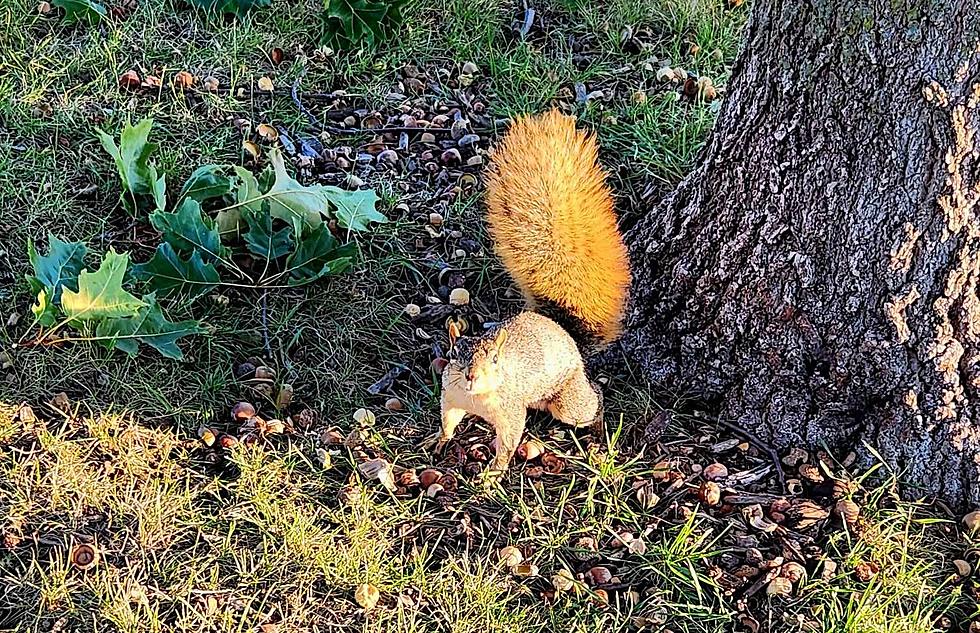
Here’s Why Your Iowa Oak Tree is Loaded with a Bumper Crop of Acorns
We have a gigantic oak tree at our house. For weeks, I've noticed every time I'm outside it sounds like it's raining. I guess it is, technically. Raining acorns.
I thought maybe all the acorns had something to do with the age of the tree. Could a huge crop of acorns suddenly happen with a decades-old tree? No, that isn't it. However, while the reason is known, the why remains a very big question.
While not on a perfect cycle by any means, oak trees have a "mast year" every two to five years. In a mast year, oak trees produce many more acorns than in a typical year. Perhaps I've really noticed it this year because there have been so few storms to blow them off. Who knows, but what causes a mast year to happen?
The New York Botanical Garden says while a rainy, dry, or abnormal year temperature-wise can impact the size of acorns, it doesn't usually have an impact on the total crop. Scients have also determined it's not a warning sign of a severe winter ahead.
So what does cause a mast year? That's a tremendous question and one that isn't really known. One theory is that in a mast year, oak trees produce so many acorns that all of the animals that love them so much can't consume them all. That helps to ensure the growth of new oak trees.
One massive oak tree can produce up to 10,000 acorns during a mast year. During those years oak trees grow more slowly, using all their energy to produce acorns. The following year, they typically have a bit of a growth spurt.
So while it's not fully known why oak trees produce a bumper crop of acorns every two to five years, there are some very happy and hungry recipients.
No Squirrel Monkey for You, Bub! These Animals Are ILLEGAL in Iowa
Gallery Credit: Johnny Marks
Amazing Photos of Animals Saved by Forever Wild
Gallery Credit: Forever Wild
Eight Iowa Animals That Are Threatened or Endangered
Gallery Credit: Getty Images/Unsplash/YouTube
More From 94.1 KRNA









